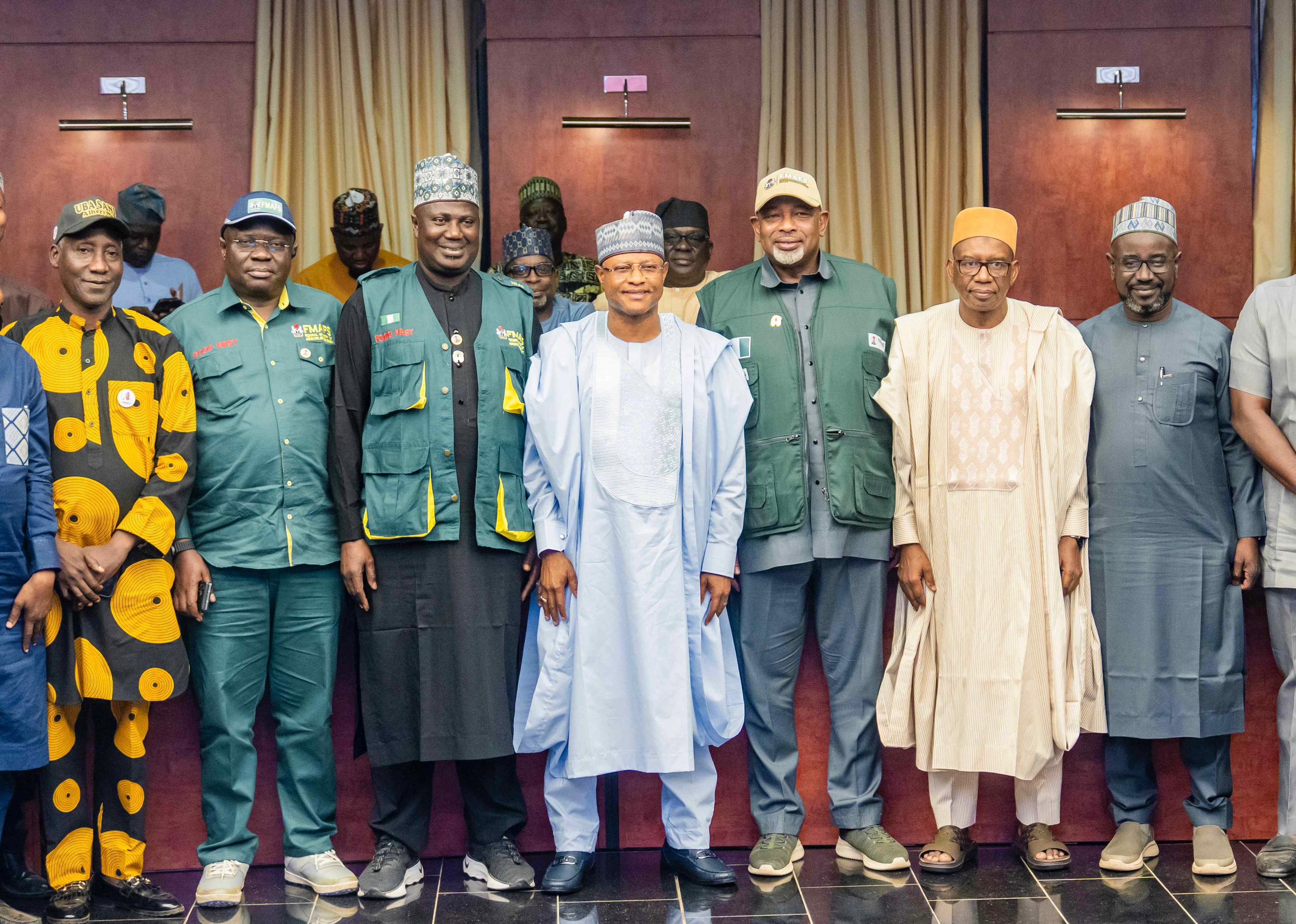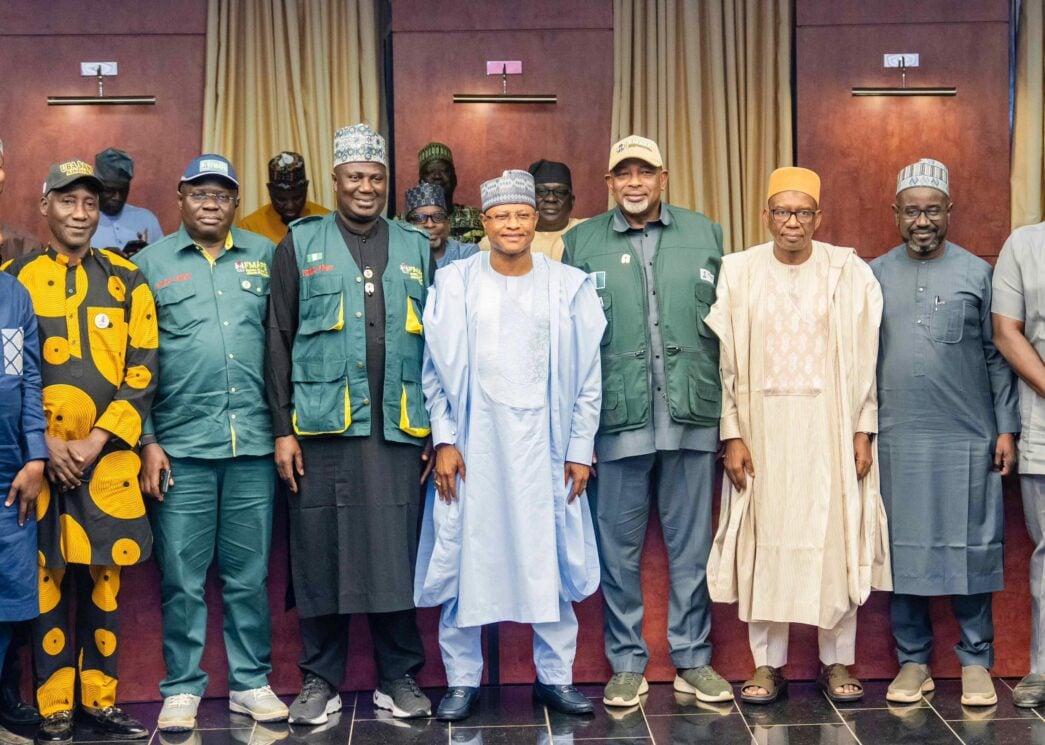BY ABDULKAREEM RAHMAN
In Kaduna today, the story of renewal is not merely one of security regained; it is a chronicle of vision, discipline, and purpose. Under the ebullient and visionary leadership of Governor Uba Sani, the State has transformed the restoration of peace into a catalyst for agricultural revolution and human prosperity. The once-muted hum of abandoned farmlands now resounds with the cadence of tractors, harvesters, and the laughter of farmers who have reclaimed their dignity and destiny. Kaduna, once on the edge of uncertainty, now stands as the agricultural heartbeat of Nigeria, its soil enriched not only by nature’s bounty but by the deliberate cultivation of enlightened policy and bold governance.
The emergence of Kaduna as the nation’s agricultural powerhouse is no accident. It is the product of method, of a leader’s conviction that peace must bear fruit and security must translate into sustenance. When Senator Uba Sani assumed office in May 2023, he inherited a State scarred by years of insecurity and rural displacement. Yet he refused to be bound by that legacy of fear. Through what has come to be celebrated as the Kaduna Peace Model, a fusion of intelligence-sharing, community partnership, and inter-agency collaboration, he restored confidence to farmers, traders, and investors alike. Vast expanses of once-deserted land were reclaimed, and rural communities began to stir again with the rhythm of enterprise. The farmer’s hoe, once silenced by anxiety, began to sing again beneath the open Kaduna sky.
But Senator Uba Sani’s genius lies not only in securing peace but in converting it into prosperity. He has demonstrated that security without economic empowerment is an unfinished triumph. Thus, as the guns fell silent, the tractors roared. In just two years, Kaduna’s agricultural budget has leapt from a modest ₦1.48 billion in 2023 to an unprecedented ₦74.02 billion in 2025. This historic surge, nearly five thousand percent, not only surpasses the Malabo Declaration target but also symbolizes a profound shift in priorities: from survival to abundance, from subsistence to sustainability. In a country still struggling with food inflation and rural poverty, Kaduna’s bold investment in agriculture stands as a luminous example of what visionary subnational leadership can achieve.
Every kobo of that investment has been guided by a clear moral and developmental compass. Fertilizer distribution on a scale never before witnessed in the State; more than nine hundred truckloads delivered to smallholder farmers, has revitalized rural production and slashed input scarcity. Irrigation schemes at Kangimi and Mashigin Kaya are being rehabilitated, unlocking all-season farming for tens of thousands of families. The deployment of hundreds of tractors, 500 power tillers, and 10,000 solar-powered pumps has mechanized cultivation across vast landscapes, reducing drudgery and enhancing yield. In a state blessed with over 4.5 million hectares of arable land and a youthful population brimming with energy, this strategic mechanization is nothing less than a declaration of intent: that Kaduna will feed the nation, and do so with efficiency and dignity.
Advertisement
Governor Uba Sani’s administration has also married vision with partnership. The creation of the Special Agro-Industrial Processing Zone, in collaboration with the African Development Bank and other partners, reflects a modern understanding of agriculture as an ecosystem of value, logistics, and innovation. These agro-industrial clusters, equipped with power, ICT infrastructure, and transport facilities, are nurturing a new generation of agripreneurs; youths who view the farm not as drudgery but as enterprise. Complementing this is the Agricultural Quality Assurance Centre, designed to position Kaduna’s produce for global markets under the African Continental Free Trade Area. By aligning local production with international standards, Uba Sani is effectively linking the farmer in Giwa or Kachia with consumers in Accra, Nairobi, and beyond.
This integration of local strength and global opportunity is further exemplified in Kaduna’s partnership with China. The State’s selection as one of six sites for the Nigeria–China Poultry Project, and as the pilot state for its launch, marks an extraordinary vote of confidence in Kaduna’s stability and leadership. The project, covering 10,000 hectares for maize and soybean cultivation and one of Africa’s largest poultry facilities, is expected to generate $450 million in revenue and create 50,000 direct jobs. It will produce over a million eggs daily; a staggering symbol of Kaduna’s ascent as Nigeria’s food hub. This partnership, built on mutual respect and shared vision, encapsulates the Governor’s diplomatic dexterity and his unrelenting pursuit of investment that uplifts his people.
If agriculture has become the engine of Kaduna’s transformation, nutrition has become its soul. The partnership with UNICEF for the statewide distribution of Ready-to-Use Therapeutic Food (RUTF) is a testament to Uba Sani’s compassion for the vulnerable. This initiative, aimed at ending severe acute malnutrition among children, ensures that no child is denied the right to grow and thrive. It complements broader interventions in health, education, and water sanitation, illustrating a governance philosophy that sees development as indivisible; where food security, human capital, and dignity converge. UNICEF’s commendation of Kaduna as the first State to adopt and fully implement the RUTF programme only underscores the administration’s consistency, transparency, and sense of duty.
Advertisement
Beyond the fields and silos, Uba Sani’s reforms reach deep into the financial and social architecture of the State. Recognizing that the prosperity of farmers must rest on access to finance and inclusion, he issued his very first Executive Order on Financial Inclusion; a move that has since opened more than 2.5 million new bank accounts and brought nearly seven million residents into the formal financial system. For the farmer, this means more than a number; it is a gateway to credit, insurance, and empowerment. Over 100,000 smallholders are now enrolled under the State’s agricultural insurance scheme, shielding them from the caprices of weather and market volatility. It is the practical expression of a government that sees resilience as both an economic and ethical imperative.
The Governor’s holistic approach to agriculture also encompasses the arteries that connect the farm to the market. Through the Rural Access and Agricultural Marketing Project (RAAMP), sixteen rural roads are being rehabilitated, linking producers with consumers, and reducing post-harvest losses that have long haunted Nigeria’s food system. As these feeder roads carve new paths of connectivity, they also pave the way for rural prosperity: small towns humming again with trade, storage, and enterprise. Simultaneously, a $122 million partnership with StarAgri West Africa is constructing and refurbishing storage facilities with a combined capacity of three million metric tonnes, ensuring that Kaduna’s harvests no longer perish in the open sun but flow through organized value chains that sustain livelihoods and stabilize prices.
At the heart of all these initiatives is a moral conviction that governance must be felt in the granaries, not just the galleries. For Uba Sani, agriculture is both policy and poetry; a means of giving meaning to peace. His tone at the opening of the 47th National Council on Agriculture and Food Security was therefore not celebratory, but visionary. In welcoming the nation’s top agricultural minds to Kaduna, he presented the State as a living laboratory of what can be achieved when courage meets clarity. He spoke of the farmer’s resilience as the country’s hidden wealth, of food security as the new frontier of national survival, and of Kaduna’s leadership as a beacon for all of Nigeria. The Council’s decision to convene in Kaduna was itself an acknowledgment of this transformation: a salute to a State that has turned adversity into abundance.
Under Governor Uba Sani’s stewardship, the Kaduna Peace Model has become both shield and plough. It protects the people while enabling production. It transforms vigilance into productivity and converts the fragile calm of yesterday into the confident progress of today. From the ginger fields of Kachia to the tomato belts of Zaria, from the maize plains of Birnin Gwari to the soybean expanses of Soba, the rhythm of revival is unmistakable. Agriculture now contributes 43 percent to Kaduna’s GDP and employs more than 60 percent of its citizens. These are not mere statistics; they are the lifeblood of a people rediscovering their strength through the stewardship of a leader who governs with empathy and precision.
Advertisement
As Kaduna’s story unfolds, it is becoming evident that Uba Sani’s approach transcends administration; it is a philosophy of nation-building. He has proven that security is not an end in itself but the soil from which prosperity grows. He has shown that when governance aligns with purpose, even the most wounded communities can blossom again. His leadership has given Kaduna a new vocabulary; one that speaks not of division but of development, not of fear but of faith. In every sense, he is cultivating not just the land but the spirit of his people.
Today, Kaduna stands tall as Nigeria’s food and agricultural hub; a model of inclusive growth, pragmatic investment, and sustained peace. Its fields are greener, its farmers more confident, its children better nourished, and its future brighter. In transforming peace into productivity, Uba Sani has not only rewritten Kaduna’s story; he has offered Nigeria a masterclass in visionary governance. The golden grains that rise from its soil, the eggs that fill its markets, and the smiles that light up its villages all bear silent testimony to a leader who understands that the true harvest of leadership is the well-being of the people.
In Kaduna, the seeds of security have blossomed into the fruits of abundance. And at the heart of that flourishing stands a Governor whose vision, passion, and humanity continue to make Kaduna not only the pride of the North, but the hope of the nation.
Rahman, an agricultural-economist and farmer, resides in Zaria, Kaduna state.
Advertisement
Views expressed by contributors are strictly personal and not of TheCable.

